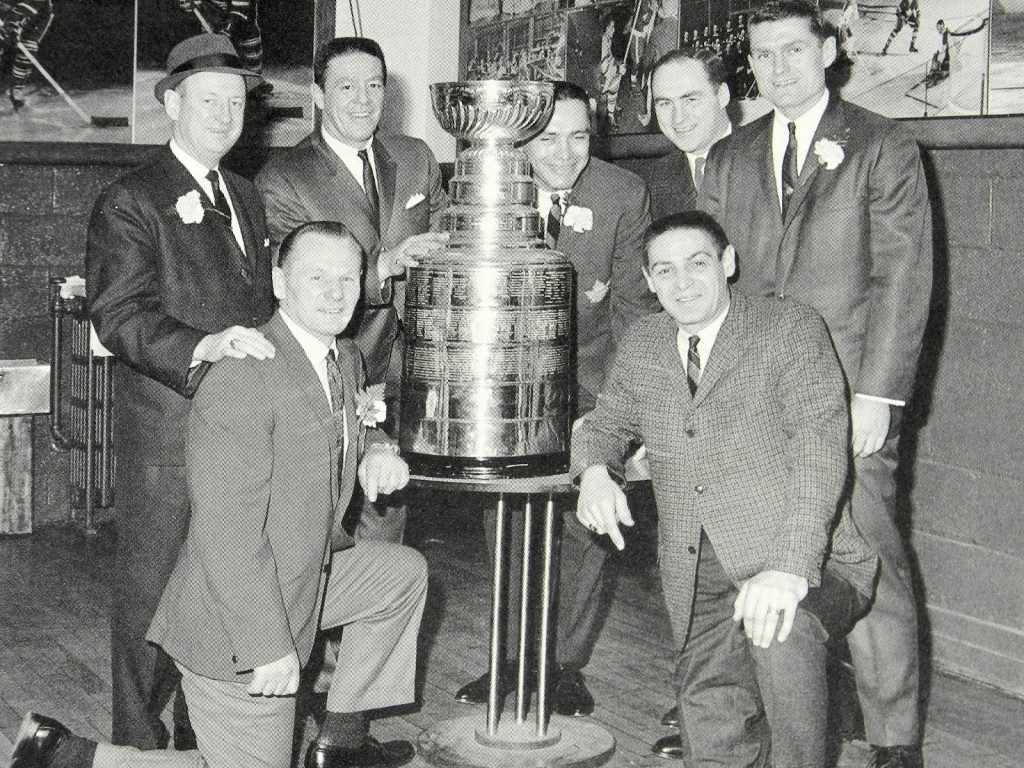
With the recently commenced 2014-2015 National Hockey League (NHL) season, Leafs Nation can’t help but think about the question that seems to keep resurfacing since 1967: Why can’t their beloved Toronto Maple Leafs win the Stanley Cup even though the team is the most valued franchise in the NHL (at $1.15 billion) according to the most recent Forbes list of “The World’s 50 Most Valuable Sports Teams”?
The fact that the Leafs have not won the cup for the past forty-seven years is an especially curious case since management over the past twenty-plus years have spent generously. To understand the reasons, let us travel back in time to the 1980s with Dr. Emmett Brown’s DeLorean time machine and move forward from there…
Yes, those of us who are old enough remember the dark days of the Leafs in the 1980s (the Harold Ballard era) when the sole objective of the owner was to make as much profit as possible. At the time, management would frequently “sell off” promising young star players to rival teams so long as the latter (other teams) were willing to pay a premium (large sum of cash) for the asset (the rising player) to the former (the Leafs). In order to abide by league regulations, these transactions were usually consummated in the form of lopsided trades. Case in point: the Leafs traded right winger Russ Courtnall (who turned out to be a solid two-way second-line player with respectable scoring punch) to the Montreal Canadiens for one-dimensional enforcer John Kordic and Montreal’s sixth round selection in the 1989 NHL Entry Draft (Mike Doers) on November 7, 1988.
However, since the fateful date of January 2, 1992, when then Leafs General Manger Cliff Fletcher pulled off the largest trade in NHL history by trading right winger/defenseman Gary Leeman, left winger Craig Berube, defenseman Michel Petit, defenseman Alexander Godynyuk, and goaltender Jeff Reese to the Calgary Flames for centre Doug Gilmour, defenseman Jamie Macoun, defenseman Ric Nattress, centre Kent Manderville, and goaltender Rick Wamsley, the Leafs have featured very good teams for the most part from 1992 to 2004 with one or more bona fide all-star players on their roster. Furthermore, under new ownership, the team has shown a willingness to field a competitive roster by spending money on star players. Not surprisingly, the Leafs went to the Western Conference Finals four times within a ten year period (from 1993 to 2002).
There are plenty of familiar names on those four Western Conference Finals teams. The 1992-1993 and 1993-1994 teams were anchored by future Hall of Famer and future Maple Leaf captain Gilmour as well as all-star players Wendel Clark (a first-line left winger), Dave Andreychuk (a first-line left winger), Glenn Anderson (a second-line right winger), and Felix Potvin (the starting goaltender). The 1998-1999 team featured future Hall of Famer and Maple Leaf captain Mats Sundin (the first-line centre), all-star goaltender Curtis Joseph, young offensively gifted defenseman Bryan Berard, and Steve Thomas (first-line right winger). The 2001-2002 had Sundin, Joseph, as well as sniper Alexander Mogilny (first-line right winger), former Legion of Doom member Mikael Renberg (second-line right winger), savvy veteran Gary Roberts (second-line left winger), and the dynamic duo of Bryan McCabe and Tomáš Kaberle (top pairing defensemen) on the blue line. With all that talent, why did the Leafs fall short during these four memorable seasons?
Simply put, the Leafs were relying too heavily on old players. As good as the core of these teams were from a pure talent perspective, the heart and soul of these teams were all in their thirties (Gilmour, Andreychuk, Sundin, and Joseph) or injury prone due to their physical style of play (Clark and Roberts), or suffered unexpected serious career threatening injury (Berard). Thus, while these Leafs clearly had a desire to win and were willing to pay a price to do so, these teams could not prevail at the end because as good as they were skills-wise, the key players simply lacked the necessary physical stamina to withstand an eighty-plus regular season schedule and then come out on top in the post-season against increasingly tougher opponents in each successive playoff round. Indeed, I attribute this reason to the undoing of the 2003-2004 team, which had so much promise but ultimately lost to the Philadelphia Flyers in the Western Conference Semifinals despite having the likes of Sundin, Mogilny, Renberg, Roberts, Karberle, and McCabe as well as future Hall of Famers Ron Francis (a centre), Joe Nieuwendyk (a centre), Brian Leetch (a defenseman), and Ed Belfour (a goaltender) along with all-star Owen Nolan (a right winger).
In the shortened forty-eight game schedule 2012-2013 season, the Leafs lost a heartbreaking seven game series to the Boston Bruins in the first round of the playoffs after making history by blowing a three goal lead in the third period of the series deciding game. Other than this appearance, the Leafs have not made the playoffs in the post lockout era (the 2005-2006 season and beyond), let alone won the Stanley Cup. Why did the Leafs sink to such a low level? Stay tuned for Part 2 of my article!
